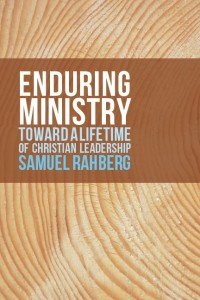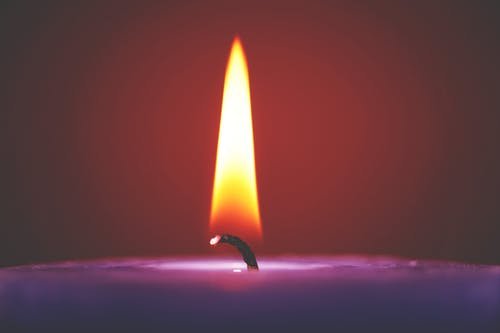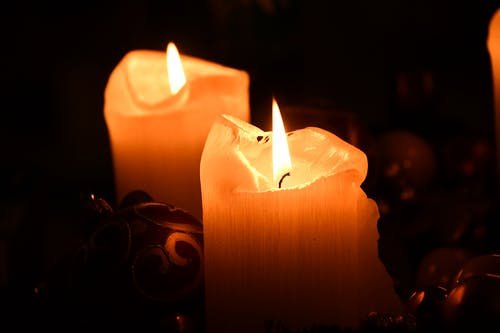An Expanded Experience of Incarnation
Incarnation—God in the flesh—is central to the Christian witness. The pandemic has challenged our assumptions about what community looks like and what tools we use to nurture human connection. The heart of the matter is nothing less than Incarnation. What does it mean to face this moment in an embodied way, to sense the invitations, and to practice Incarnation?
Enduring Ministry Reflection, Celebrating the Release
This past week I found myself right at home in Mark 6. The disciples are sent out two by two, preaching, casting out demons, and anointing the sick. After a time they return to Jesus and tell “him all that they had done and taught” (6:30, NRSV) Jesus replies, "Come away by yourselves to a deserted place all by yourselves and rest a while" (31). Sometimes that's exactly what we want to hear, the expectation we have as we climb into the boat with Jesus. Listen for what really happens: “Now many saw them going and recognized them, and they hurried there on foot from all the towns and arrived ahead of them” (33). The disciples did not get the deserted place they wanted. What the disciples do get is a boat ride with Jesus between crowds. This book and this evening is about the boat ride. What happens, what needs to happen when we're sent out, when we're serving, and when we're on the boat journeying with Christ on the way to the next crowd so that we get off the boat and continue serving like Jesus? “As he went ashore, he saw a great crowd; and he had compassion for them, because they were like sheep without a shepherd; and he began to teach them many things” (34). Whatever happened on that boat, Jesus sets foot ashore and demonstrates an enduring ministry.
God Gives the Fire: Thomas Merton on Promethean Theology
I recently finished reading Thomas Merton's The New Man (New York: Farrar, Straus and Giroux, 1961) and found his chapter on Promethean theology (p. 21-48) too intriguing to keep to myself. A Promethean theology, in Merton's view, ultimately presumes that freedom must be won or taken. Merton uncovers this faulty notion by examining an ancient Greek myth alongside the struggle of modern Christians to let the radical and complete grace of God wash out any subtle attempt to win favor and worth. The fire of our identity and belonging is pure gift, Merton argues convincingly. Rather than attempt to relay his masterful chapter, I offer here a brief introduction to the Promethean Myth and some highlights to guide your own reflection. Linger with them until you reach the last piece, The Soul Is Like Wax, which is a beautiful and related image also written by Merton.
Boundaries: A Matter of Freedom and Life
I find it easier to practice boundaries within the context of spiritual direction than I do the flow of life and responsibilities outside of those relationships. This became clear to me after re-reading Boundaries by psychologists Henry Cloud and John Townsend [Zondervan, 1992]. Nearly twenty years after first reading this best seller, I still surprise myself some days by being clear and relaxed as a spiritual director, only to lose my sense of groundedness moments later in another setting. What can we learn from spiritual direction relationships that helps us keep practicing boundaries in others?
Praying Grace-Fully
From biblical times through the modern day, Christians have asserted that the practice of prayer is essential to the life of discipleship. Unfortunately, prayer can also become a source of shame and inadequacy. Who among us doesn’t feel that our prayer life isn’t what it should be?
Poem: Ceaseless Prayer
What is the point of discipleship
if not to live truthfully
in the Divine Presence,
to make our way, ready for thein-breaking of God’s grace?
Like desert monks we saturate
ourselves with Scripture
that we, too, might dwell in the Word
and put on the mind of Christ.
We who practice
receiving God’s touch
and waiting through its absence
cannot resist meeting joys and challenges
with more and more transparency.
Centeredness wells up
as biblical words and symbols
begin grounding priorities and decisions
in something other than mere ego.
The fullness of Christian life
spills over, then,
into convictions and actions
that serve the greatest good.
Call it prayer, call it lectio,
but do not let it be confined
to quiet moments before dawn.
How Do Our Limits Set Us Free?
We all have limits. It is an undeniable truth for every member of humankind. Whether we understand them to be the end of our capacities or the boundaries of our identities, we know the discomfort that accompanies the attempt to exceed them. Were discomfort the only outcome, we would simply discount them as inconveniences and pretend to avoid them. That would, however, dismiss the potential appreciation for limits that Benedict has been encouraging since the sixth century. In Ch. 4 of the Rule he urges the reader, “Day by day remind yourself that you are going to die”










